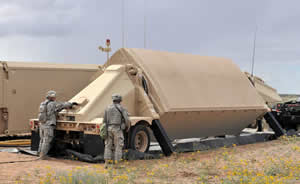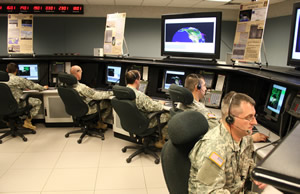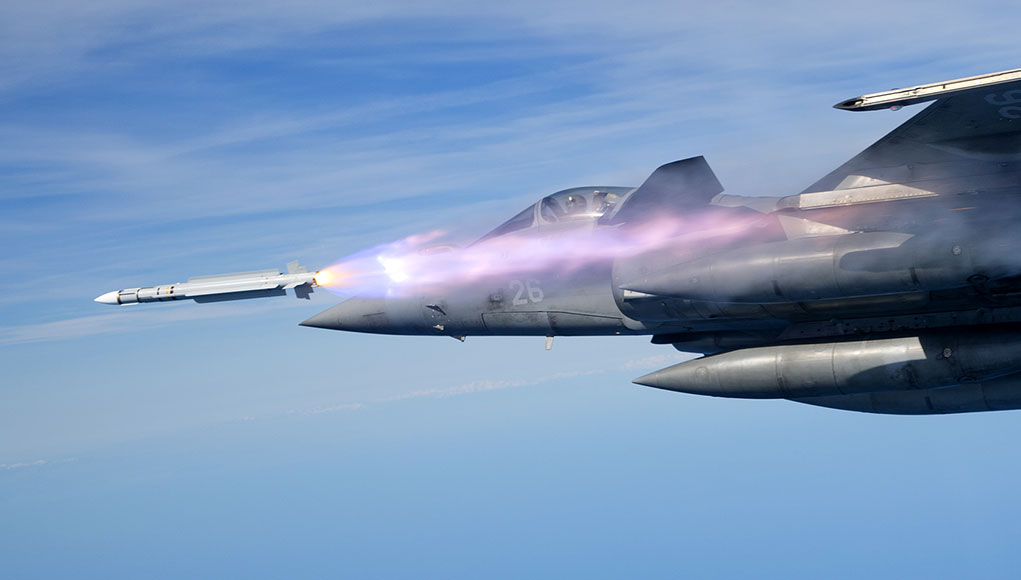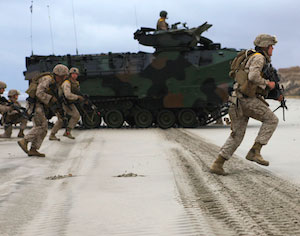‘National Team’ to Provides Command and Control for the U.S. Missile defense System
January 17th, 2012: A team headed by Lockheed Martin as prime contractor has won a US$980 million follow-on contract for continued work on Command, Control, Battle Management and Communications (C2BMC) for the Missile Defense Agency (MDA). The five company consortium contractors, known as the ‘Missile Defense National Team’ is involved with this program since 2002. The consortium is developing and supporting the U.S. Ballistic Missile Defense system integration, linking the various sensors and weapon systems. The majority of the work is conducted in Arlington, Va., Huntsville, Ala., and Colorado Springs, Colorado.

+$900 Million for AN/TPY-2 Radars
Raytheon has received two orders worth over $940 million for a number of AN/TPY-2 radars complementing procurement orders for Terminal High Altitude Area Defense (THAAD) missile defense systems for the U.S. Army and the UAE. The AN/TPY-2 multi-functional radar searches, detects, tracks and discriminates ballistic missile threats, seamlessly integrating with a variety of ballistic defense systems. In addition to supporting the U.S. Army in a terminal defense role as part of a THAAD Battery, AN/TPY-2 radars are deployed around the world providing continuous forward-based ballistic missile defense as a key component of the global Ballistic Missile Defense Architecture. The recent sale to the UAE represents the first export sale of the THAAD missile system. The program is managed through the Missile Defense Agency (MDA) as a Foreign Military Sale project. The AN/TPY-2 has also been deployed to the Middle East, operating in Southern Israel as part of the U.S. missile early warning system in the area.
Missile Warning Radar Station in Turkey is Online
NATO has deployed the AN/TPY-2 Ballistic Missile Defense radar in a new location near Malatya in south-central Turkey, where the early warning radar provides the forward most lookout detecting missiles launched from Iran. The station is manned by U.S. teams and is supported by Turkish personnel. Turkey, along with Portugal, Poland, Romania and Spain are the five countries that agreed to host elements of a U.S.-European missile defense shield. This deployment represents a major milestone in achieving the U.S. Administration’s European Phased Adaptive Approach (EPAA), which provides a limited anti-missile umbrella, protecting Europe from missile attacks from rough states like Iran. The AN/TPY-2 is the critical sensor component of the EPAA.

Boeing Selected to Continue Ground-Based Ballistic Missile Defense System Support
Boeing and team member Northrop Grumman will continue to support the Ground-Based Midcourse Defense (GMD) element of the U.S. Ballistic Missile defense System. Boeing was selected by the Missile defense Agency over a competing team headed by Lockheed Martin and Raytheon. GMD uses radars, other sensors, command-and-control facilities, communications terminals and a 20,000-mile fiber optic communications network. There are more than 20 operational interceptors at Vandenberg Air Force Base, Calif., and Fort Greely, Alaska, to defend the United States against long-range ballistic missile threats. Boeing has been supporting the GMD program as a prime contractor under MDA contract since 2001. The Boeing-led team currently operates and sustains the deployed GMD weapon system while developing and testing new technologies to provide increased reliability and to meet evolving customer needs and requirements. Northrop Grumman has been part of the team since 1998, responsible for designing and deploying the command-and-control systems that form the backbone of the GMD ground system.
Past reports:
















